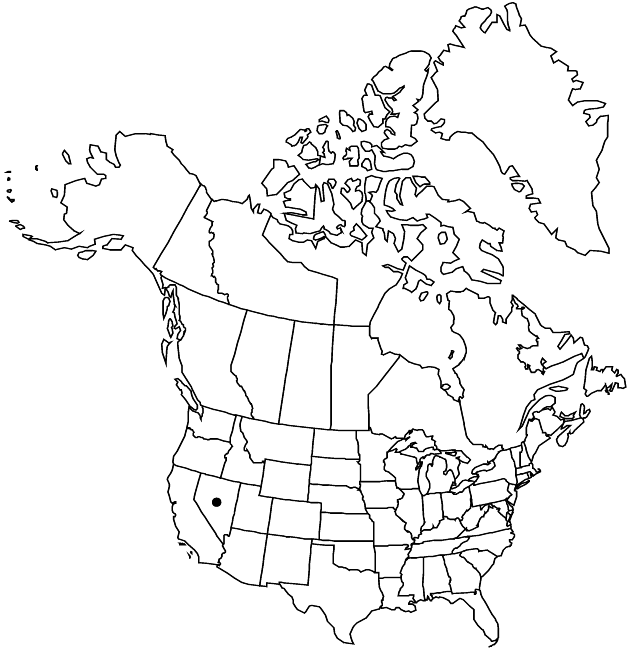Difference between revisions of "Porophyllum pygmaeum"
Syst. Bot. 14: 583. 1989.
Endemic
Treatment appears in FNA Volume 21. Treatment on page 234.
imported>Volume Importer |
imported>Volume Importer |
||
| Line 49: | Line 49: | ||
|publication year=1989 | |publication year=1989 | ||
|special status=Endemic | |special status=Endemic | ||
| − | |source xml=https:// | + | |source xml=https://bitbucket.org/aafc-mbb/fna-data-curation/src/2e0870ddd59836b60bcf96646a41e87ea5a5943a/coarse_grained_fna_xml/V19-20-21/V21_570.xml |
|tribe=Asteraceae tribe Heliantheae | |tribe=Asteraceae tribe Heliantheae | ||
|subtribe=Asteraceae (tribe Heliantheae) subtribe Pectidinae | |subtribe=Asteraceae (tribe Heliantheae) subtribe Pectidinae | ||
Latest revision as of 20:13, 5 November 2020
Perennials, 5–15 cm; internodes mostly 1–5(–12) mm. Leaf blades mostly filiform, 8–15 × 1–2 mm. Phyllaries 5(–8), ovate to oblong or linear, 8–11 mm. Florets mostly 25–75+; corollas yellow, 7–9 mm. Cypselae 7–8 mm; pappi: longer bristles 6–7 mm. 2n = 24.
Phenology: Flowering spring–summer.
Habitat: Sandy soils, with desert scrub
Elevation: 1300–2100 m
Discussion
Selected References
None.
Lower Taxa
None.
